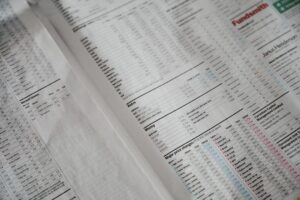The Importance of Emotional Intelligence in Trading Forex Successfully
Trading forex can be an exhilarating and potentially lucrative venture. However, it can also be highly stressful and emotionally challenging. The ability to effectively manage emotions is crucial for success in this volatile and fast-paced market. This is where emotional intelligence comes into play.
Emotional intelligence refers to the ability to recognize, understand, and manage our own emotions, as well as the emotions of others. In the context of forex trading, it involves being aware of our emotional state and being able to control and channel those emotions in a way that supports rational decision-making.
Why is emotional intelligence important in forex trading?
1. Managing fear and greed: Fear and greed are two of the most common emotions that traders experience. Fear can lead to hesitation, causing traders to miss out on potential opportunities. On the other hand, greed can lead to impulsive and irrational decision-making, often resulting in losses. Emotional intelligence helps traders recognize these emotions and manage them effectively, ensuring that decisions are based on logic and analysis rather than emotional impulses.
2. Avoiding revenge trading: Revenge trading is a common trap that many traders fall into. It occurs when a trader tries to recoup losses by taking high-risk trades out of frustration or anger. Emotional intelligence helps traders recognize when they are falling into this pattern and enables them to step back and reassess their strategy instead of making impulsive and potentially disastrous decisions.
3. Staying disciplined: Discipline is crucial in forex trading. Emotional intelligence helps traders stay disciplined by enabling them to stick to their trading plan and follow their strategy, even in the face of market fluctuations and emotional temptations. It helps traders maintain a long-term perspective and avoid making impulsive decisions based on short-term emotional reactions.
4. Handling stress: Forex trading can be highly stressful, especially during times of market volatility. Emotional intelligence helps traders manage stress effectively by recognizing its effects on their decision-making and taking steps to mitigate its impact. This may involve engaging in stress-reducing activities such as exercise, meditation, or seeking support from others.
5. Building resilience: Forex trading is a journey filled with ups and downs. Emotional intelligence helps traders build resilience by enabling them to bounce back from losses, learn from their mistakes, and adapt their strategies accordingly. It helps traders maintain a positive attitude and focus on long-term goals, rather than getting discouraged by short-term setbacks.
How can traders develop emotional intelligence?
Developing emotional intelligence is a lifelong process, but there are steps traders can take to enhance their emotional intelligence and improve their trading performance:
1. Self-reflection: Take the time to reflect on your emotions and how they influence your trading decisions. Be honest with yourself about your strengths and weaknesses in managing emotions and identify areas for improvement.
2. Mindfulness: Practice mindfulness techniques such as meditation or deep breathing exercises to increase self-awareness and develop the ability to observe your emotions without judgment.
3. Education: Learn about the psychology of trading and emotional biases that can affect decision-making. Understanding these concepts can help you recognize and manage your own emotions more effectively.
4. Journaling: Keep a trading journal to track your emotions before, during, and after trades. This can help you identify patterns and triggers for emotional reactions, allowing you to develop strategies to manage them.
5. Seek support: Join trading communities or seek the guidance of a mentor or coach who can provide objective feedback and support in developing emotional intelligence.
In conclusion, emotional intelligence plays a crucial role in successful forex trading. It helps traders manage fear and greed, avoid revenge trading, stay disciplined, handle stress, and build resilience. By developing emotional intelligence through self-reflection, mindfulness, education, journaling, and seeking support, traders can enhance their ability to make rational decisions and navigate the forex market with confidence.






